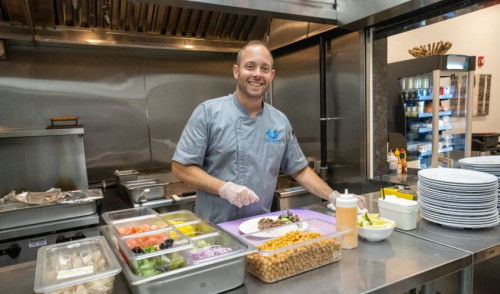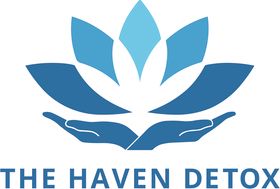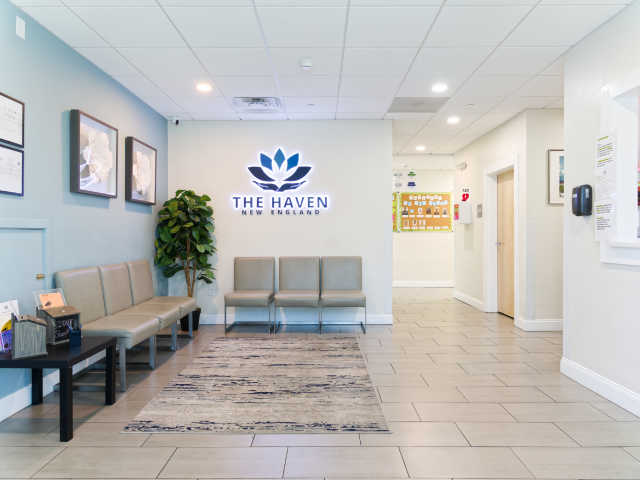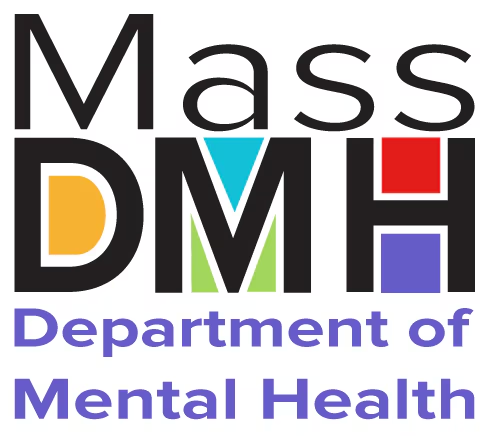








The Haven Detox - New England
Verified Center
This provider's information has been quality-checked by Recovery.com's Research Team for accuracy and completeness, including center verification through appropriate third-party organizations.
Treatment Focus
This center treats substance use disorders and mental health conditions. You'll receive individualized care catered to your unique situation and diagnosis, learn practical skills for recovery, and make new connections in a restorative environment.
Primary Level of Care
Offering intensive care with 24/7 monitoring, residential treatment is typically 30 days and can cover multiple levels of care. Length can range from 14 to 90 days typically.
Treatment Focus
This center treats substance use disorders and mental health conditions. You'll receive individualized care catered to your unique situation and diagnosis, learn practical skills for recovery, and make new connections in a restorative environment.
Primary Level of Care
Offering intensive care with 24/7 monitoring, residential treatment is typically 30 days and can cover multiple levels of care. Length can range from 14 to 90 days typically.
Provider's Policy
We accept most types of health insurance. We work with individual policies purchased under the Affordable Care Act (ACA), as well as policies through an employer. We also accept some types of state funded insurance, depending on the policy.
The Haven Detox - New England
The Haven Detox - New England
About The Haven Detox - New England
The Haven Detox - New England is dedicated to providing a path for clients to triumph over addiction. The team has created a welcoming space for clients to feel better from day one. They specialize in treating a wide range of addictions, from alcohol and opioids to cocaine and beyond. Recognizing that everyone's journey is uniquely their own, they tailor their care to fit each client’s needs. The Haven Detox starts with a gentle detox program and offers residential care for those who need additional support. Their experienced professionals, some of which have bilingual capabilities, use proven methods to help individuals uncover the root of their addiction and build a strong foundation for lasting recovery.
Find a Safe Space for Healing and Growth
Their team believes in treating the whole person, not just the addiction. This looks like taking a deep dive into the root causes of substance use while nurturing the mind, body, and spirit. The Haven Detox's skilled therapists use a blend of evidence-based practices like cognitive behavioral therapy (CBT) and motivational interviewing, proven to help rewire thought patterns and boost internal motivation for change. Recognizing that healing takes many forms, they also offer holistic therapies like meditation and yoga, giving clients a full toolkit to manage stress and find inner peace. The staff is the heartbeat of The Haven Detox. From the compassionate nurses who guide clients through detox to the experienced counselors who become trusted confidants, every team member is dedicated to creating a supportive, judgment-free zone. At The Haven, clients find a community rooting for their success every step of the way.
Receive Emotional Support and Prioritize Physical Wellness
The Haven Detox - New England not only focuses on detoxification but also provides a holistic recovery experience that addresses emotions, thoughts, and behaviors, particularly for individuals navigating the complexities of addiction. A standout feature at The Haven Detox is their Haven for Heroes program, which offers specialized care for veterans, military members, and first responders. This program recognizes the distinct challenges faced by these individuals, including trauma and mental health struggles, and delivers therapies to help them regain control again. Additionally, The Haven Detox incorporates IV therapy into clients’ treatment plans. IV therapy enhances hydration and nutrient absorption to support clients’ physical needs during detox and recovery.
Find Comfort and Build Connections
The Haven Detox - New England offers a relaxing environment with thoughtful touches that prioritize comfort for all clients. Each bedroom has plush, queen-sized beds, modern furniture, and flat-screen TVs, creating a cozy, coastal atmosphere for healing. After leaving treatment, clients can receive case management, sober housing support, and access to support groups. But what truly sets The Haven Detox apart is the sense of connection and care clients feel while in treatment. Staff are deeply committed to crafting recovery plans and walking alongside clients on the path to success.

Highlights from the Center
Highlights
These highlights are provided by and paid for by the center.
Holistic Approach
Medically Assisted Detox
Master's and Doctoral Level Therapists
Trauma Treatment
Center Overview
Treatment Focus
This center treats substance use disorders and mental health conditions. You'll receive individualized care catered to your unique situation and diagnosis, learn practical skills for recovery, and make new connections in a restorative environment.
Joint Commission Accredited
The Joint Commission accreditation is a voluntary, objective process that evaluates and accredits healthcare organizations (like treatment centers) based on performance standards designed to improve quality and safety for patients. To be accredited means the treatment center has been found to meet the Commission's standards for quality and safety in patient care.

The Haven Detox - New England
Insurance Accepted




Recovery.com Verified Listing
Recovery.com verified that the name, location, contact information and license to operate for this treatment provider are valid and up-to-date.

Joint Commission Accredited

Licensed by the Massachusetts Department of Mental Health
Recovery.com is an independent, third-party mental health resource. Verification does not imply endorsement and does not guarantee the quality of treatment services.
Meet Your Care Team

Stacey Rogers
Executive Clinical Director - Clinical
MSW, LICSW

David Baker
Clinical Director of SUD - Clinical
LMHC

Gilda Romeo
Executive Director - Clinical

Zachary Sweet
Program Director - Clinical

Dr. Fariba Miryousefi
Medical Director of SUD - Medical
MD
Your Care Options
Specializations
Alcohol
Using alcohol as a coping mechanism, or drinking excessively throughout the week, signals an alcohol use disorder.
Anxiety
Anxiety is a common mental health condition that can include excessive worry, panic attacks, physical tension, and increased blood pressure.
Detox
Detox fully and safely removes toxic substances from the body, allowing the next steps in treatment to begin with a clean slate.
Co-Occurring Disorders
A person with multiple mental health diagnoses, such as addiction and depression, has co-occurring disorders also called dual diagnosis.
Depression
Symptoms of depression may include fatigue, a sense of numbness, and loss of interest in activities. This condition can range from mild to severe.
Drug Addiction
Drug addiction is the excessive and repetitive use of substances, despite harmful consequences to a person's life, health, and relationships.
Post Traumatic Stress Disorder
PTSD is a long-term mental health issue caused by a disturbing event or events. Symptoms include anxiety, dissociation, flashbacks, and intrusive thoughts.
Residential
In a residential rehab program, patients live onsite, with access to daily treatment and 24-hour care. An average stay is 30-90 days.
Who We Treat
Men and Women
Men and women attend treatment for addiction in a co-ed setting, going to therapy groups together to share experiences, struggles, and successes.
Treatment Services
Detox
Detox fully and safely removes toxic substances from the body, allowing the next steps in treatment to begin with a clean slate.
Licensed Primary Mental Health
Some primary care providers offer mental health diagnosis and treatment. This can prevent patients from developing more serious conditions.
Residential
In a residential rehab program, patients live onsite, with access to daily treatment and 24-hour care. An average stay is 30-90 days.
Approaches
Evidence-Based
A combination of scientifically rooted therapies and treatments make up evidence-based care, defined by their measured and proven results.
Individual Treatment
Individual care meets the needs of each patient, using personalized treatment to provide them the most relevant care and greatest chance of success.
Twelve Step
Incorporating spirituality, community, and responsibility, 12-Step philosophies prioritize the guidance of a Higher Power and a continuation of 12-Step practices.
Therapies
1-on-1 Counseling
Patient and therapist meet 1-on-1 to work through difficult emotions and behavioral challenges in a personal, private setting.
Art Therapy
Visual art invites patients to examine the emotions within their work, focusing on the process of creativity and its gentle therapeutic power.
Family Therapy
Family therapy addresses group dynamics within a family system, with a focus on improving communication and interrupting unhealthy relationship patterns.
Medication-Assisted Treatment
Combined with behavioral therapy, prescribed medications can enhance treatment by relieving withdrawal symptoms and focus patients on their recovery.
Motivational Interviewing
Based on the idea that motivation to change comes from within, providers use a conversational framework to discover personalized methods for change.
Relapse Prevention Counseling
Relapse prevention counselors teach patients to recognize the signs of relapse and reduce their risk.
Twelve Step Facilitation
12-Step groups offer a framework for addiction recovery. Members commit to a higher power, recognize their issues, and support each other in the healing process.
Conditions We Treat
Grief and Loss
Grief is a natural reaction to loss, but severe grief can interfere with your ability to function. You can get treatment for this condition.
Personality Disorders
Personality disorders destabilize the way a person thinks, feels, and behaves. If untreated, they can undermine relationships and lead to severe distress.
ADHD, ADD
ADHD is a common mental health condition caused by dopamine imbalance. Common symptoms include inattention, hyperactivitiy, and impulsivity.
Anger
Although anger itself isn't a disorder, it can get out of hand. If this feeling interferes with your relationships and daily functioning, treatment can help.
Anxiety
Anxiety is a common mental health condition that can include excessive worry, panic attacks, physical tension, and increased blood pressure.
Bipolar
This mental health condition is characterized by extreme mood swings between depression, mania, and remission.
Codependency
Codependency is a pattern of emotional dependence and controlling behavior. It's most common among people with addicted loved ones.
Depression
Symptoms of depression may include fatigue, a sense of numbness, and loss of interest in activities. This condition can range from mild to severe.
Obsessive Compulsive Disorder (OCD)
OCD is characterized by intrusive and distressing thoughts that drive repetitive behaviors. This pattern disrupts daily life and relationships.
Substances We Treat
Alcohol
Using alcohol as a coping mechanism, or drinking excessively throughout the week, signals an alcohol use disorder.
Benzodiazepines
Benzodiazepines are prescribed to treat anxiety and sleep issues. They are highly habit forming, and their abuse can cause mood changes and poor judgement.
Chronic Relapse
Consistent relapse occurs repeatedly, after partial recovery from addiction. This condition requires long-term treatment.
Co-Occurring Disorders
A person with multiple mental health diagnoses, such as addiction and depression, has co-occurring disorders also called dual diagnosis.
Cocaine
Cocaine is a stimulant with euphoric effects. Agitation, muscle ticks, psychosis, and heart issues are common symptoms of cocaine abuse.
Drug Addiction
Drug addiction is the excessive and repetitive use of substances, despite harmful consequences to a person's life, health, and relationships.
Ecstasy
Ecstasy is a stimulant that causes intense euphoria and heightened awareness. Abuse of this drug can trigger depression, insomnia, and memory problems.
Heroin
Heroin is a highly addictive and illegal opioid. It can cause insomnia, collapsed veins, heart issues, and additional mental health issues.
Languages
Aftercare
Care Designed for Your Needs
Personal Amenities
Amenities
Special Considerations
Activities

Learn More About the Center
Substance Use Treatment: Detox, Rehab & Therapy Options
What works for one person may not work for another. Having a variety of modalities ensures you receive care tailored to what resonates with you.
Mental Health Care at Haven
Explore how Haven’s approach helps heal emotionally and regain life balance today.
Massachusetts Addiction and Mental Health Treatment Resource Guide
Finding effective addiction and mental health treatment in Massachusetts can feel overwhelming when you or a loved one needs help immediately.
Addiction & Mental Health Treatment in Massachusetts
Behind the scenes, one of the highest staff-to-client ratios in the Massachusetts, a fine-dining restaurant experience, a complete gym setup, and arranged pick-up transportation ensures top-tier care at every turn.
What people are saying
Treatment
4.9
Accommodations
4.9
Food & Nutrition
5.0
Value
4.9
Ryan
Reviewed 04/29/25
Review from Rehabs.com
Lavon
Reviewed 03/14/25
Review from Rehabs.com
Alexis
Reviewed 02/22/25
Review from Rehabs.com
Morningstar
Reviewed 05/01/25
Review from Rehabs.com
Raj
Reviewed 03/13/25
Review from Rehabs.com





